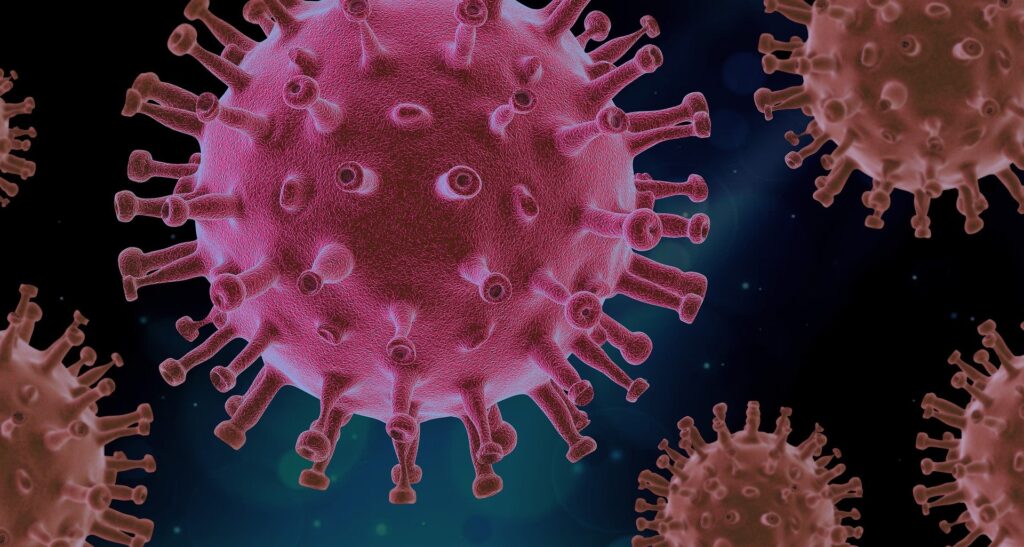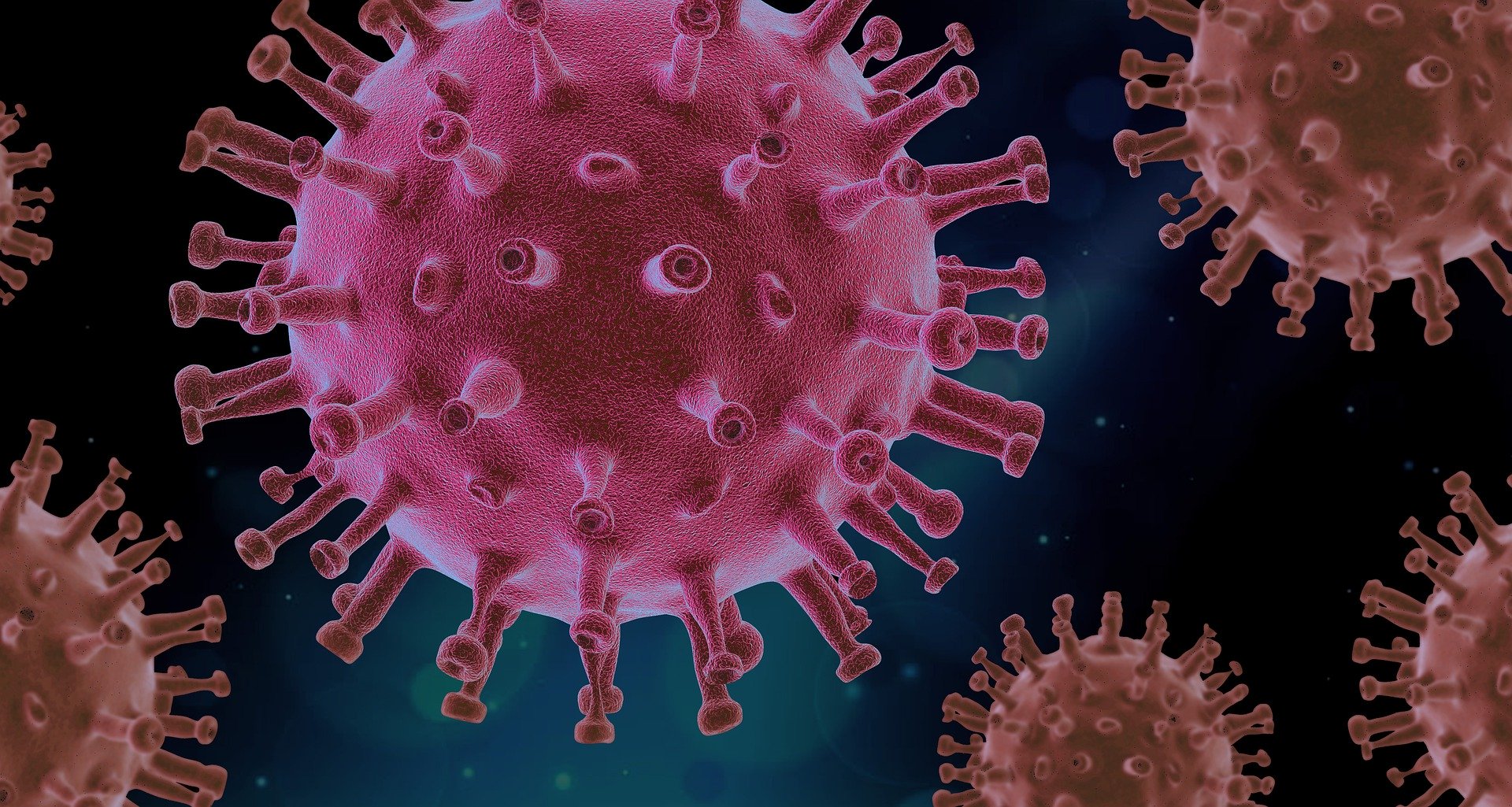
You’re already quite aware of how the spreads and its prevention methods.
In this article, I would like to elaborate a bit more on the fatality, the immune system and self-care tips.
The pandemic has taught us that a strong immune system is the very first and the last line of defence against all pathogens. It should be of prime concern year long.
The virus that shook the world:
Coronaviruses (CoV) are a large family of viruses that cause illness ranging from the common cold to more severe diseases such as Middle East Respiratory Syndrome (MERS-CoV) and Severe Acute Respiratory Syndrome (SARS-CoV).
Coronavirus disease (COVID-19) is a new strain that was discovered in 2019 and has not been previously identified in humans.
Coronaviruses can be transmitted between animals and people.
It was first identified in a cluster with pneumonia symptoms in Wuhan city, China. Most of the cases were linked to the seafood and animal market. The virus might have originated in animals or where people coexist in cramped quarters alongside animals both dead and alive but its mode of transmission was through person-person contact.
Transmission:
The virus seems to have its maximum transmission around the time of the first symptoms (even if they are mild) and for 2 or 3 days afterwards, and then rapidly declines, so that by 7 days, most people are not infectious.
The “incubation period” means the time between catching the virus and beginning to have symptoms of the disease. It ranges from 1-14 days, most commonly around five days.
Can someone spread the virus without being sick?
People are thought to be most contagious when they are most symptomatic (the sickest).
Spread is possible before people show symptoms and that is why we need to observe social distancing (stay at home as far as possible).
By avoiding contact, we can do our bit in stopping the spread as silent carriers and finally reducing the number of people who may need eventual hospitalisation.
Spread from contact with contaminated surfaces or objects:
It may be possible that a person can get COVID-19 by touching a surface or object that has the virus on it and then touching their face.
This also means that you should avoid touching your face except immediately after you have washed your hands. Use a clean napkin/tissue if you must touch your face.
Cleaning of visibly dirty surfaces followed by disinfection is a best practice measure for prevention: especially your mobile phone/headphones/sunglasses which are likely to be much closer to your face.
Does it spread through food?
Regarding food safety, the World Health Organization (WHO) has issued precautionary recommendations including advice on following good hygiene practices during food handling and preparation, such as washing hands, cooking meat thoroughly and avoiding potential cross-contamination between cooked and uncooked foods and sick people cooking food.
The State Govt has also declared that the consumption of thoroughly cooked meat and eggs is safe.
What’s unique about viruses?
Viruses can’t thrive independently. Instead, they must invade a living cell are not able to replicate without the metabolic machinery of the cell.
Viruses are subject to mutations, the genomes of different viruses can recombine to form new strains.
Such changes may result in the creation of new viral strains with altered virulence which is the harmfulness of the virus.
This is the very reason why the flu vaccine changes almost every year.
Can a person be re-infected?
Virus latency is the ability of a virus to lie dormant within a cell. The virus can reactivate and begin producing large amounts of viral progeny that stay within the host indefinitely. Also sometimes the antibodies formed during initial infection are not sufficient or do not last long enough in our body.
The immune system:
How does the body fight virus/bacteria/allergens?
When the immune system encounters a foreign particle it produces antibodies that fight the particle. Antibodies linger in the system for variable durations and protect the body from being reinfected. Eg, in the case of chickenpox, protection is somewhat lifelong.
if the defences are low, we fall sick.
If the immune system overpowers, you may not display symptoms.
If the defences are low and the particle overpowers, we fall sick.
Infection does not necessarily lead to disease. Infection occurs when pathogens enter your body and begin to multiply. Disease, which typically happens in a small proportion of infected people, occurs when the cells in your body are damaged as a result of infection, and signs and symptoms of an illness appear eg., fever.
Those with lower immunity (elderly/those with chronic ailments being more prone) will succumb and produce symptoms.
In the case of coronavirus too, most infected people may show mild symptoms and will recover from the virus as the immune system continues to fight it but may remain carriers for a minimum period of 14 days.
For some others, it may prove to be fatal.
Building a strong immune system:
Diet/Exercise/Rest are the cornerstones.
Nutrition:
- Adequate intake of 1st class proteins from non-veg and dairy products.
- Optimal hydration.
- Vitamins (vitamin C/E) and mineral supplements eg selenium/zinc.
- Antioxidants – Curcumin/glutamine.
- Do not be wary of consuming vitamins and minerals as they act as buffers when food falls short.
- The immune system can’t function optimally without its weapons.
- Stress and lack of sleep cause a weak immune system.
- Learn some techniques for effective stress management.
- Practice good sleep hygiene.
Be productive activities during the lockdown:
Use this time well to focus on yourself! Some activities would be:
- -Journaling (Take inventory of your life)
- -Reach out to people you have been out of touch with, mend relations.
- -Meditation/Yoga.
- -Cleaning: Spend time cleaning things you tend to neglect like the wardrobe/makeup kit/refrigerator.
- -Cook: try new recipes
- -Get on a diet: Good time to start one with very few distractions. An expert can help you plan a diet with the very few resources available at this time.
- -Workout: Home-based exercise resources are available.
- -Online courses
- -Brush up on skills/pursue hobbies.
- -Read books: Paperbacks please, give your gadgets a break!
Do not sit for too long, move as much you can. Get up and stretch, reading, holding the phone and sitting can cause postural problems.
Avoid social media as it may cause anxiety, only log on to resources such as WHO or official government websites for updates.
Vulnerable people are already displaying signs of anxiety and depression. Avoid spreading misinformation.
Stay safe: NOW & ALWAYS!
Shweta Bhatia, Registered Dietitian, Mind your Fitness!





